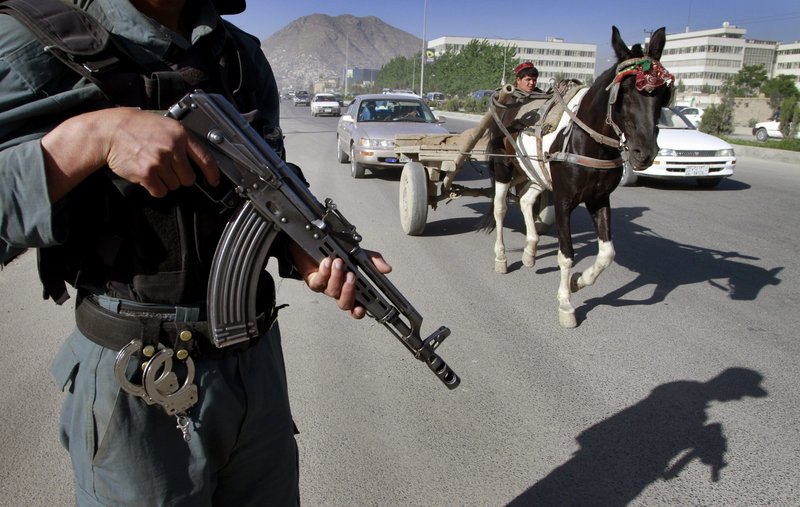WASHINGTON – The Obama administration is seeking to use the killing of Osama bin Laden to accelerate a negotiated settlement with the Taliban and hasten the end of the Afghanistan war, according to U.S. officials involved in war policy.
Administration officials think it could now be easier for the reclusive leader of the largest Taliban faction, Mohammad Omar, to break his group’s alliance with al-Qaida, a key U.S. requirement for any peace deal. They also think that bin Laden’s death could make peace talks a more palatable outcome for Americans and insulate President Barack Obama from criticism that his administration would be negotiating with terrorists.
“Bin Laden’s death is the beginning of the endgame in Afghanistan,” said a senior administration official who, like others interviewed for this article, spoke on the condition of anonymity to discuss internal policy deliberations. “It changes everything.”
Another senior official involved in Afghanistan policy said the killing “presents an opportunity for reconciliation that didn’t exist before.” Those officials and others have engaged in urgent discussions and strategy sessions over the past two days about how to leverage the death into a spark that ignites peace talks.
But actually bringing the various Taliban factions to the negotiating table remains a challenge. Omar’s shadowy organization, based in the Pakistani city of Quetta, does not have a political wing or officials who have been publicly identified as interlocutors. The Obama administration is also depending on deft maneuvering by Afghan President Hamid Karzai’s government, which is supposed to be leading the process, and the cooperation of the Pakistani government, whose intelligence service – long a patron of various Taliban groups – could easily interfere with peace overtures.
“We know where we want to go, but getting there won’t be easy,” the second senior official said. “There’s a long and complicated path ahead.”
Even so, bin Laden’s demise comes at what administration officials deem to be a propitious moment: A surge of U.S. military forces over the past year has pushed insurgents out of strategically important parts of southern Afghanistan, increasing the chances that top Taliban leaders may want to pursue ne gotiations.
The daring helicopter-borne raid on bin Laden’s house by U.S. Special Operations forces further ups the ante, current and former officials said, by signaling to members of the Taliban’s high command that they are not guaranteed safety by living in parts of Pakistan beyond the typical reach of U.S. drones. Bin Laden had been living near the country’s military academy, in a city in the hills north of the Pakistani capital, for six years.
“It has a tremendous demonstration effect,” said Vali Nasr, who was a senior adviser to the State Department on Afghanistan and Pakistan until last month. “Mullah Omar has to be wondering when he’ll be picked up.”
Nasr said bin Laden’s death “puts more pressure on the Taliban than all of the counterinsurgency [operations] we’ve been doing in Afghanistan.”
Although a peace deal has long been the preferred outcome for civilian members of the president’s national security team, many of whom question the sustainability of recent military gains, skepticism from Pentagon officials and ground commanders held up a unified U.S. government strategy until this spring.
In a February speech that elicited little attention because of events in the Middle East, Secretary of State Hillary Rodham Clinton articulated the outlines of the administration’s new approach.
In a significant shift toward encouraging dialogue, she made clear that the Taliban no longer has to renounce violence, break with al-Qaida or embrace the Afghan constitution as preconditions for talks; now those terms only have to be “necessary outcomes of any negotiation.”
“Reconciling with an adversary that can be as brutal as the Taliban sounds distasteful, even unimaginable. And diplomacy would be easy if we only had to talk to our friends. But that is not how one makes peace,” Clinton said.
Top military officials have expressed concern in internal discussions that calling for negotiations too soon could jeopardize hard-fought gains on the battlefield.
They contend that their aggressive campaign is weakening the insurgency, and that if they are left to pursue their strategy without a significant reduction in troops, the Taliban will be forced into a weaker deal, getting no more than a minority role within a U.S.-friendly, democratic government.
But many of the president’s civilian national security advisers contend that the benefits of incremental gains do not merit the cost – in lives and dollars – of such a large military presence.
They say negotiations are an essential part of a new war strategy that will allow Obama to announce a substantial reduction in U.S. forces starting this summer but still ensure that the Taliban will no longer rule the entire country.
“How are we going to get there? We can get there by continuing to fight them. I don’t think that’s actually a strategy that is successful. Or we can get there by negotiating with them in such a way to allow a political settlement where they’re part of the government,” Anne-Marie Slaughter, who was the State Department’s director of policy planning until earlier this year, said at a Senate Foreign Relations Committee hearing on Tuesday.
Bin Laden’s death, she said, “creates a new opportunity to begin real negotiations.”
Send questions/comments to the editors.



Success. Please wait for the page to reload. If the page does not reload within 5 seconds, please refresh the page.
Enter your email and password to access comments.
Hi, to comment on stories you must . This profile is in addition to your subscription and website login.
Already have a commenting profile? .
Invalid username/password.
Please check your email to confirm and complete your registration.
Only subscribers are eligible to post comments. Please subscribe or login first for digital access. Here’s why.
Use the form below to reset your password. When you've submitted your account email, we will send an email with a reset code.